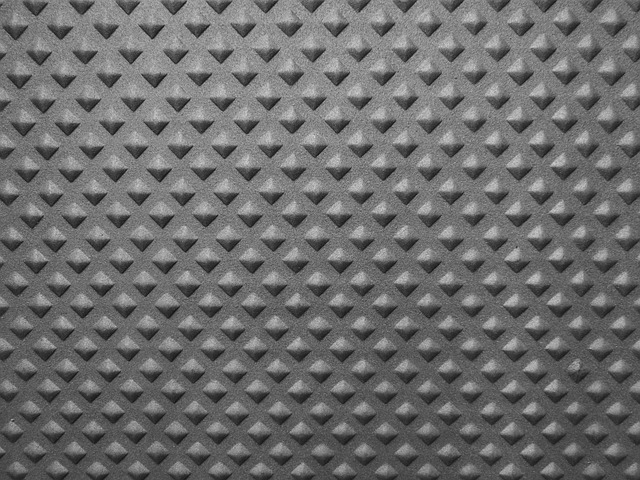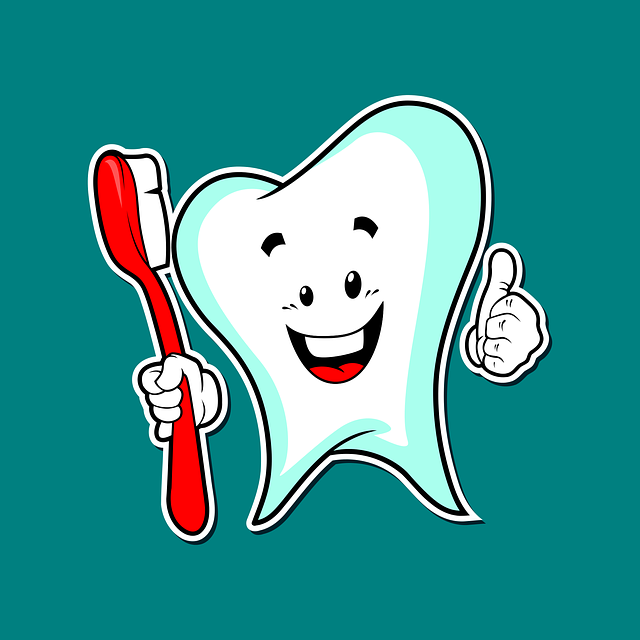Are veneers damaging to your teeth? Let’s debunk this dental myth and uncover the truth about veneers’ impact on your oral health.
1. The Truth About Veneers: Addressing Common Dental Myths
Veneers are a popular option for enhancing the appearance of teeth, but there are several myths surrounding them. Let’s debunk these misconceptions and get to the truth behind veneers:
Myth #1: Veneers are only for cosmetic purposes.
- Fact: While veneers are primarily used to improve the aesthetics of teeth, they also offer functional benefits.
- Veneers can help fix issues like chipped, worn down, or uneven teeth, which can improve bite alignment.
- They can also fill gaps between teeth, making them an effective solution for mild orthodontic problems.
- Veneers not only enhance your smile but also contribute to overall oral health by protecting the natural teeth underneath.
Myth #2: Veneers require extensive tooth preparation.
- Fact: Contrary to popular belief, minimal tooth preparation is needed when getting veneers.
- Typically, only a small amount of enamel is removed from the front surface of the teeth.
- This ensures a secure bonding process and allows the veneers to look and feel natural.
- Advancements in dental technology have made it possible to create ultra-thin veneers that require even less tooth modification.
Now that you know the truth about veneers, you can make an informed decision about whether they are right for you. Remember, consulting with a dental professional is essential to determine the best course of action based on your individual needs and goals.
2. Debunking the Myth: Veneers and Their Impact on Tooth Health
Veneers are often subject to misconceptions when it comes to their impact on tooth health. Let’s debunk these myths and explore the truth behind veneers.
Veneers do not damage your natural teeth: Contrary to popular belief, veneers do not harm your natural teeth. In fact, they can provide an added layer of protection against stains, chips, and cracks. The process of placing veneers involves minimal tooth preparation, where a small layer of enamel is shaved off to create space for the veneer. However, this is a conservative approach that ensures a secure and comfortable fit for the veneer, without causing any damage to the underlying tooth structure.
Gum health is not compromised by veneers: The misconception that veneers contribute to gum disease is unsubstantiated. In reality, veneers can improve your gum health by creating a smooth surface, making it easier to maintain oral hygiene. While it is important to continue flossing and brushing regularly, veneers themselves do not directly cause gum problems. Any gum issues typically arise from
3. Exposing the Misconceptions: Busting Myths about Veneers and Tooth Damage
When it comes to veneers, there are many misconceptions that have circulated over the years. Let’s bust some of these myths and set the record straight.
Myth #1: Veneers cause tooth damage. This is simply not true. Veneers are designed to enhance the appearance of your teeth without causing any harm. In fact, the procedure involves removing a minimal amount of enamel to ensure a secure and comfortable fit. With proper care and regular dental check-ups, veneers can last for many years without causing any damage to your natural teeth.
- Myth #2: Veneers look unnatural. This is another misconception surrounding veneers. With advancements in dental technology and materials, veneers can now be customized to match the natural color, shape, and size of your teeth, blending seamlessly with your smile. Professional dentists make it a priority to achieve a natural-looking result that enhances your overall appearance, giving you a confident and beautiful smile.
- Myth #3: Veneers are only for aesthetic purposes. While it’s true that veneers enhance the appearance of your teeth, they also serve a functional purpose. Veneers can correct cracked, chipped, and uneven teeth, improving your overall bite and alignment. They can also be used to fill in gaps between teeth and cover up stains that are resistant to whitening treatments. So, veneers not only enhance your smile but also contribute to the health and functionality of your teeth.
In recent years, veneers have become increasingly popular for achieving a flawless smile. However, it’s natural to have concerns about their safety and their impact on natural teeth. To give you a clear understanding of the facts, we will delve into the topic of veneers and shed light on their safety for natural teeth. 1. Minimal enamel removal: Contrary to popular belief, the process of getting veneers involves minimal enamel removal. Skilled dental professionals carefully remove a thin layer of enamel from the tooth surface to ensure a seamless fit for the veneer. This minimal removal protects the natural tooth structure and maintains its strength and integrity. 2. Non-invasive procedure: Unlike more invasive dental treatments, veneers are a non-invasive procedure. They do not require any surgery or extensive dental work. This means that you can achieve a stunning smile without the need for anesthesia or prolonged recovery periods. The process typically involves two visits to the dentist, and the results are long-lasting, providing you with a beautiful smile for years to come. When it comes to veneers, there are plenty of myths and misconceptions out there that can make people hesitant. Let’s separate fact from fiction and address whether veneers can be harmful. Fact: Fiction: By recognizing the facts and dispelling the myths, you can make an informed decision about whether veneers are right for you. If you have any concerns, consulting with a qualified dentist can help address them and provide personalized advice based on your dental health. Veneers are a popular dental treatment for enhancing smiles and correcting various dental imperfections effectively. However, it’s important to understand the facts about veneers and the potential tooth damage they can cause. Here, we provide you with valuable insights that will help you make an informed decision about veneers. Firstly, it’s essential to note that veneers are thin, custom-made shells that are bonded to the front surface of your teeth. While they can greatly enhance the appearance of your smile, the process of attaching veneers involves removing a thin layer of enamel from the tooth’s surface. This irreversible step allows the veneers to fit seamlessly and naturally. However, it’s crucial to consult with your dentist to determine if you are a suitable candidate for veneers, as this procedure may not be suitable if you have weak enamel or tooth decay.5. Can Veneers Be Harmful? Separating Fact from Fiction
6. The Dental Reality: Understanding Veneers and Potential Tooth Damage
It’s crucial to maintain excellent oral hygiene practices after getting veneers. Brush and floss regularly, and visit your dentist for regular check-ups and cleanings. While veneers are durable, they can still be subject to damage. Avoid biting on hard objects, such as ice or pens, and limit your consumption of stain-causing foods and beverages to ensure the longevity of your veneers. Your dentist will provide you with specific guidelines tailored to your individual needs to minimize the risk of potential tooth damage.
7. Setting the Record Straight: Disentangling Misinformation about Veneers
When it comes to veneers, there is a fair share of misinformation out there that can lead to confusion. Let’s set the record straight and demystify some common misconceptions!
First and foremost, veneers do not ruin your natural teeth. One prevalent myth suggests that getting veneers requires extensive removal of your tooth structure, but that’s simply not true. While some enamel may be trimmed off to prepare for the veneer placement, it is a minimal amount, and the procedure is generally conservative in nature. It’s important to consult with a qualified dentist who will assess your specific case and determine the best course of action for preserving your natural teeth while achieving the desired results.
-
- Veneers are not only for celebrities: Contrary to popular belief, veneers are not solely a luxury for the rich and famous. They have become more accessible and affordable in recent years, allowing anyone who desires a beautiful smile to explore this option. Many dental clinics offer flexible payment plans to make veneers an achievable goal for a wider range of individuals.
- Veneers are customizable and look natural: One worry people may have is that veneers will look fake or unnatural. Modern technology has advanced significantly, enabling the creation of veneers that mimic the look and feel of natural teeth. Dentists work closely with patients to determine the right shape, color, and translucency of veneers that seamlessly blend with their unique smile, resulting in a natural, stunning appearance.
- Veneers are stain-resistant: Coffee lovers, rejoice! Veneers are highly resistant to stains, meaning you can still enjoy your favorite beverages without worrying about teeth discoloration. However, it’s important to remember that proper oral hygiene, including regular brushing and flossing, along with routine dental check-ups, are essential in maintaining the longevity and appearance of your veneers.
By dispelling these misconceptions and understanding the facts about veneers, you can make informed decisions about whether they are the right solution for your dental needs. Remember to consult with a knowledgeable dentist who will guide you through the process and address any further concerns or questions you may have. Achieving the smile of your dreams is within reach, and veneers may just be the answer you’ve been looking for!
Veneers are a popular dental treatment for achieving a flawless smile, but there are often doubts and misconceptions surrounding their effects on dental health. Let’s dispel those doubts and shed light on the truth behind veneers.
First and foremost, it’s important to understand that veneers do not damage your teeth. In fact, they can even strengthen them! Veneers are thin, custom-made shells that are bonded to the front surface of your teeth. Contrary to popular belief, they actually provide an additional layer of protection against stains, chips, and other forms of damage. By restoring the appearance of your teeth and enhancing their strength, veneers can significantly improve your overall dental health.
- Natural appearance: One common concern is that veneers may look fake or unnatural. However, advancements in dental technology have allowed for highly realistic and natural-looking veneers. They are customized to match the shape, size, and color of your existing teeth, ensuring a seamless blend and an aesthetically pleasing result.
- Minimal alteration: Another doubt people often have is whether veneers require extensive tooth alteration. The truth is that only a small amount of enamel needs to be removed to prepare the tooth for veneer placement. This ensures a strong bond and allows the veneer to fit comfortably in your mouth. Additionally, this minimal alteration is reversible, meaning that if the veneers ever need to be removed, your natural teeth will be intact.
- Maintenance and care: Some may wonder if veneers require special care. The good news is that they can be maintained just like your natural teeth. Regular brushing, flossing, and dental check-ups are all it takes to keep your veneers in excellent condition. However, it’s important to avoid habits such as using your teeth as tools or biting into hard objects, as these can potentially damage both veneers and natural teeth.
9. Investigating Veneer Myths: What Science Says about Tooth Damage
When it comes to veneers, there are several myths surrounding their potential to damage teeth. However, scientific evidence has proven these myths to be inaccurate. Here are the facts:
1. Veneers don’t weaken teeth: Contrary to popular belief, veneers do not weaken your natural teeth. In fact, they can offer an additional layer of protection for your teeth against daily wear and tear. The bonding process used to attach veneers to your teeth is a safe and reliable procedure that does not compromise the strength of your natural teeth.
2. Veneers do not cause tooth decay: Some people worry that veneers can lead to tooth decay due to the removal of a small amount of enamel during the preparation process. However, the removal of enamel is minimal and does not increase the risk of tooth decay. In fact, once the veneers are in place, they form a protective barrier, preventing bacteria and acids from damaging your natural teeth.
10. Putting Myths to Rest: The Truth about Veneers and Tooth Preservation
Veneers are a popular dental treatment known for transforming smiles. However, there are several misconceptions surrounding veneers and their impact on tooth preservation. Let’s debunk these myths and uncover the truth:
1. Myth: Veneers cause irreparable damage to natural teeth.
Truth: Contrary to popular belief, veneers do not harm your natural teeth. In fact, the process involves minimal removal of tooth enamel, ensuring that your natural teeth remain healthy and strong. Veneers are custom-made to fit over your existing teeth, acting as a protective shell that enhances their appearance without compromising their structure.
2. Myth: Veneers are only for aesthetics and do not offer any oral health benefits.
Truth: While veneers are primarily known for their cosmetic benefits, they also provide certain oral health advantages. They can effectively cover minor dental imperfections such as chips, stains, or gaps between teeth. Furthermore, veneers can improve tooth alignment and correct minor bite issues, leading to an overall improvement in oral health. It’s important to note that veneers should not replace routine dental care, including brushing, flossing, and regular dental check-ups.
Conclusion
In conclusion, veneers do not damage teeth when applied correctly by a skilled dentist. Dental myths debunked: veneers are safe and can provide a long-lasting solution for enhancing your smile.




